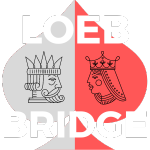Here is a hand I declared recently. You can use the next button to follow the play. I was fortunate South led a spade and that the ♠Ace was onside. After North played their ♠Ace on the first trick, I had 11 quick winners: 2♠ + 1♥ + 5♦ + 3♣. A 12th trick might be available in clubs or hearts. My initial thought was to combine chances by cashing my high clubs. If the ♣Jack didn't drop, I would rely on a finesse against the ♥King for my 12th trick. As you can see, neither would succeed here.
On the run of the diamonds, North discarded the ♥9. North-South play Odd-Even discards. So the ♥9 advertises a heart honor. My 1NT opening showed 14+ to 17 HCP. West tabled with 16 HCP. North expects East-West to have 30-33 HCP. Subtraction from 40 HCP tells North that South has at most 2 HCP. North has no reason to expect South to gain the lead. If South gained the lead, we would already be down. So there is no reason for North to share information with South. South's signal was intended to fool declarer. North might be trying to dissuade me from taking a working heart finesse. North might be signaling honestly, hoping I will not believe their signal. When North discarded 2 more spades on the run of the diamonds, I suspected North might be guarding the ♥King and likely the ♣Jack. If South had led from a 3-card spade suit, North's discards would have given me a 3rd spade trick. I chose to believe North's signal and planned to rely on a squeeze or a finesse against the ♣Jack. I cashed the ♥Ace to clarify a potential squeeze position. Now North's presumed ♥King is a winner. If North also has the guarded ♣Jack, a squeeze will provide 12 tricks. I crossed to the ♣Queen to avoid blocking the hearts and cashed the ♠Queen. North had a significant break in tempo choosing between unguarding their ♣Jack or discarding their ♥King. As per law 73.D.2 (see below), it isn't legal to intentionally alter your tempo in order to fool your opponents. North eventually discarded a club. I cashed dummy's clubs from the top. When the ♣Jack fell, I had 12 tricks.
Lessons from this hand:
- Don't signal partner when your signal will only help declarer
- Odd-Even discards often make it difficult to find a neutral discard. For that reason, I recommend using standard attitude signals on discards. Use upside-down attitude signals if that is your agreement.
- The potential of being squeezed in clubs and hearts was foreseeable. When the ♥Ace was cashed, North should have chosen what they would guard. That would have allowed North to play in tempo, avoiding helping declarer with the choice between finessing against the ♣Jack or playing for the heart-club squeeze.
Law 73. D. 2. Intentional Variations
A player may not attempt to mislead an opponent by means of a remark or a gesture, by the haste or hesitancy of a call or play (as in hesitating before playing a singleton), the manner in which a call or play is made or by any purposeful deviation from correct procedure.




